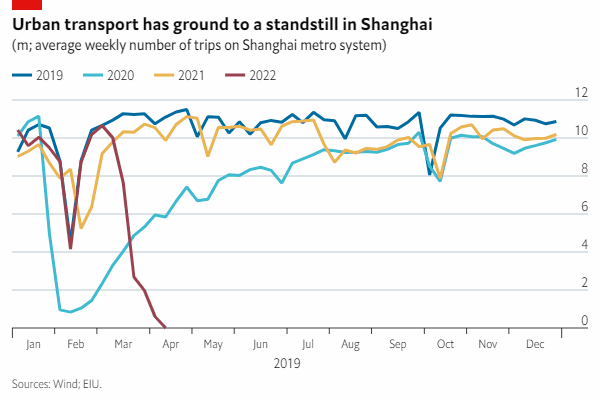Inflation
The recent rise in Chinese consumer inflation is alarming for China’s middle class, which is already feeling the pinch of falling wages. This is reducing non-essential spending and depressing the outlook for the Chinese economy. Meanwhile, in the United States, inflation is at its highest level in four decades. In China, food prices rose just over two per cent compared with a year ago. The country’s 400 million middle-class residents are already facing income reductions because of the strict zero-Covid policy and the difficult economic environment.
The Chinese government has taken various steps to boost the economy. One way is to lower interest rates. China has kept state-run banks’ interest rates artificially low, allowing politically connected individuals to borrow cheap money and reinvest it with higher returns. These policies, however, created incentives for people to invest in real assets, fueling inflation in all parts of the economy.
Inflation in China is a major problem, which must be addressed. The government should not allow inflation to continue to rise. Inflation will eventually lead to a recession. Fortunately, China’s leaders are beginning to take measures to reduce the burden of inflation. According to Ben Simpfendorfer, a partner at consulting firm Oliver Wyman, the country’s inflation rate will fall in the next six to eight months.
China’s economy may be sustainable if it focused on creating industries that are useful to people. But these industries are not being created. Instead, the government is stimulating the economy with credit, which leads to credit-fueled booms. The Chinese government is spending large amounts of money on projects that have low or negative returns.
The central bank is unlikely to cut policy rates until currency pressure eases. However, the central bank may be reluctant to do so until it has achieved its inflation goal. Yi Gang, the central bank governor, said that the central bank is unlikely to lower interest rates until the pressure on the currency subsides.
The cholera epidemic has impacted the economy and slowed investment activity across sectors. As a result, people aren’t spending as much on food, retail, and tourism. This has put pressure on major services such as construction and infrastructure. However, manufacturing activity has rebounded since September. This rebound could be the result of the government’s recent spending on infrastructure and other necessities.
Inefficient state-owned sector
China’s state-owned enterprises (SOEs) have been losing their importance in the economy for nearly 30 years. Their share of the gross domestic product has dropped almost by half since the mid-1990s, and their share of industrial profits is now less than a quarter of the total. The non-state sector is now the main source of employment in China, and the SOEs have lost their role as major employers.
The government’s goal is to make the SOEs more competitive and give them full autonomy over their commercial decisions. But SOEs also lack flexibility, as the government requires them to hand over profits to the government. This has created a situation where SOEs are effectively mini-societies. They provide life-time employment for workers, and provide the basics of social services.
While the Chinese government’s reforms have increased the efficiency of state-owned enterprises, they have failed to deal with their fundamental problems. For example, in recent years, the profits of industrial state-owned enterprises declined from six percent of the GDP to less than one percent. Moreover, many of these enterprises are technologically inefficient and carry an increasing proportion of retired and redundant workers. Additionally, the number of state-owned enterprises that are incurring net losses is also increasing.
The inefficient management of government corporations is worsened by high executive turnover. As a result of the anti-corruption campaign led by President Xi, many SOE executives were forced to resign and replaced by managers who lack a coherent strategy. As a result, many of the SOEs are no longer as efficient as they once were.
At the beginning of the 21st century, state-owned enterprises represented more than a third of China’s industrial enterprises. They also accounted for half of their main business income and half of their total profits. However, this proportion has fallen to one-fifth of this number by 2017, although their overall profits have increased a bit.
The SOEs also pose a major challenge to economic reform in China. Many foreign politicians claim that their privileges make it unfair for foreign investors to invest in China. But in reality, China made investments of $60 billion overseas in 2011 alone, and they continue to do so.
Corruption
Corruption in China’s economy has many forms and is rampant throughout the country. One of the most prevalent forms of corruption is petty theft, which involves the misuse of public funds and extortion from rank-and-file government officials. It affects all levels of elite, from the most affluent to the poorest. It is estimated that as many as half of the cadre force is involved in corrupt practices.
Despite the rising middle class, many people still do not have the financial means to jump hospital queues or pay red pocket money to rank-and-file officials. Although petty theft is less prevalent than a decade ago, some of the forms of corruption have grown increasingly hidden. While some people may be unaware of this corruption, others have suffered the consequences. Some have lost their jobs in SOE takeovers, and others have had their houses and land illegally demolished.
Corruption in China’s economy is a global problem, but it is not just a local problem. Western capitalists are at the root of the problem. Their reliance on the Chinese economy makes it necessary for them to maintain the CCP dictatorship, which they understand as the best regime for the Chinese people. Some economic liberals claim that a more open market will solve this problem. But the only way to end corruption in China’s economy is to fight for mass democratic control.
Despite the growing corruption problem in China, the government is willing to sacrifice corrupt officials in the name of public interest. But it is important to note that the government wants to keep this corruption investigation within “safe limits,” and crackdown on independent whistleblowers. The JPMorgan investigation into the railway sector is a good example of this. In March, the old Ministry of Railways was dissolved, and 15 senior officials were either dismissed or arrested for corruption.
While China is considered a quasi-communist economy, the close ties between business and government are still apparent. The Corruption Perception Index scores China in the 40s, which is a slight improvement from its 2012 score of 39.

